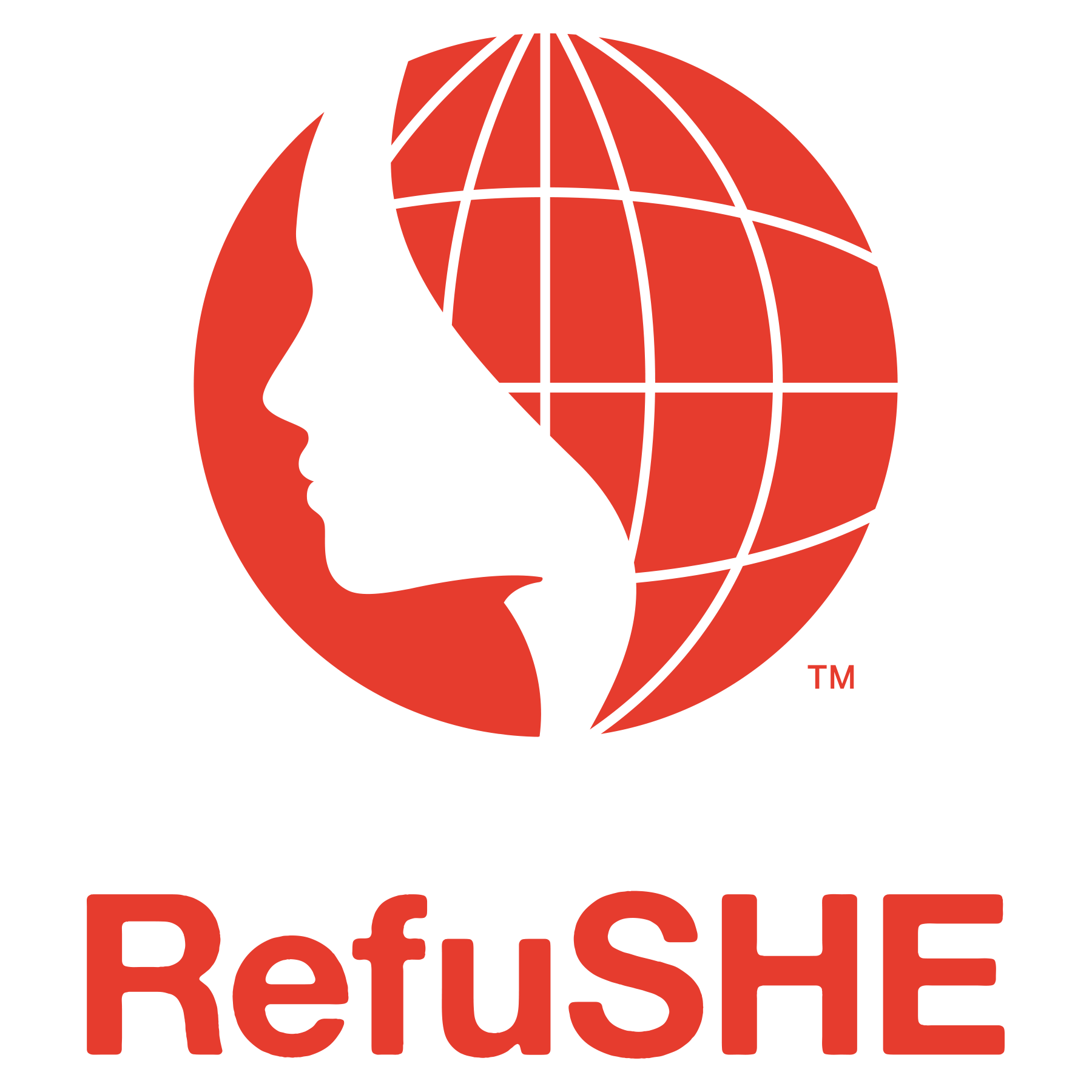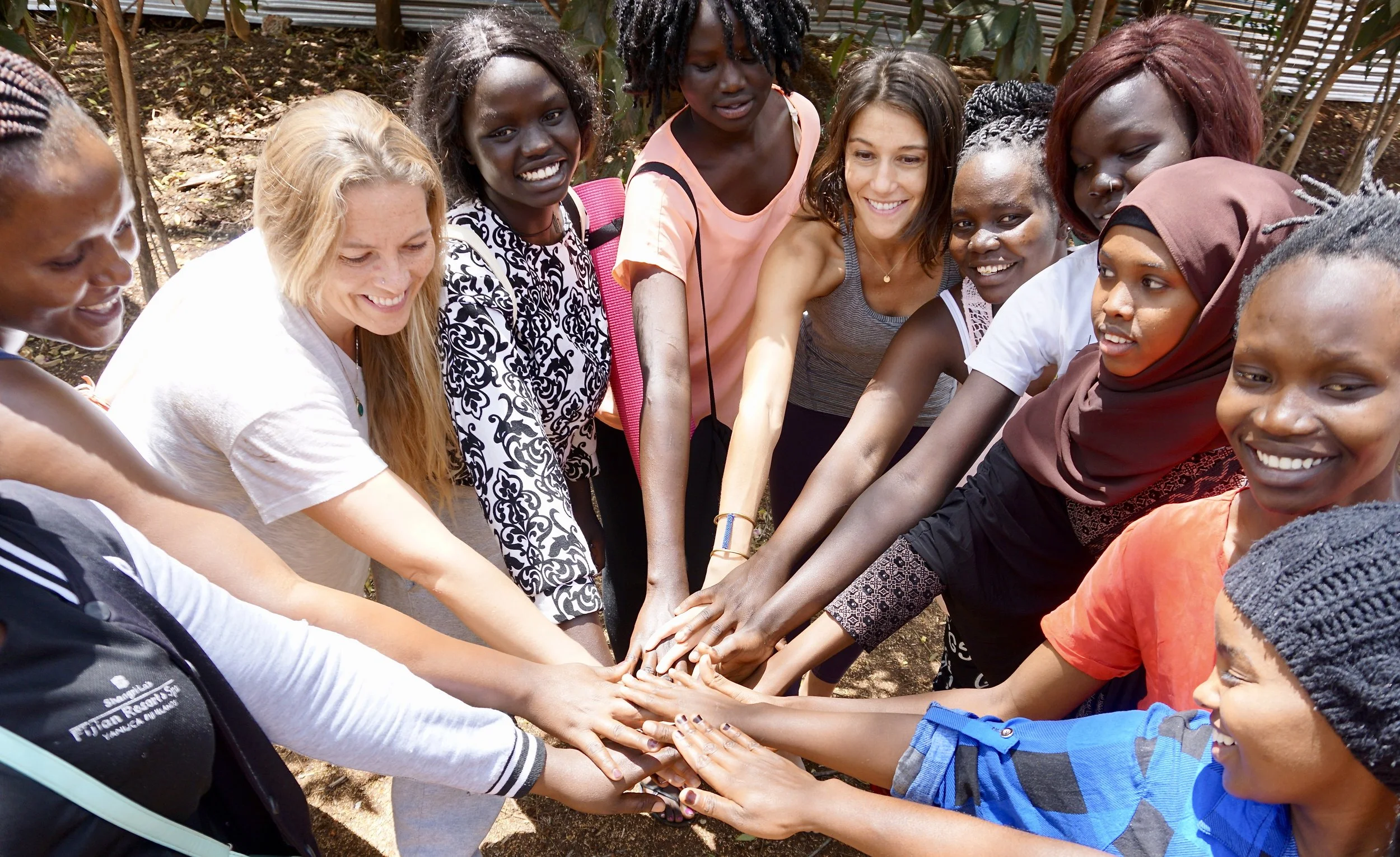RefuSHE x OMpowerment Project
“Everything that we experience in this life we do so because we have a body. It is the vehicle from how we move from one place to another and it is also the vessel for how life moves through us. Hands clench in response to anger, stomachs churn in nervousness, heads pound from tension, hearts live in joy or break from grief, disease may flourish due to chronic stress. . . What we always have is the body. When we consciously connect to the body we begin to heal, to restore resiliency and to reintegrate ourselves, and it starts with the breath.” Gina de la Chesnaye
Last week, RefuSHE and the OMPowerment Project came together in Nairobi to train ten young refugee women and two staff counselors in trauma informed yoga. The young women that RefuSHE serves have survived one or more traumatic events in their harrowing journey to safety - conflict, interfamilial violence, sexualized violence, domestic servitude, and abandonment, among others. Recognizing that healing the mental and emotional wounds that these young women carry inside is essential to setting them up for success in their economic, educational, and personal life endeavors, RefuSHE has placed psychosocial counseling at the core of its holistic model. In order to incorporate new research on the relationship between yoga, mindfulness, and trauma healing, the organization has decided to introduce trauma informed yoga to staff and beneficiaries.
“Sometimes you get out of a session [with a beneficiary] and you can’t even breathe. The information these girls have given you, it’s actually too much for you to bear. . . You hold your breath and you’re like: you actually went through all that?” – Winnie, counselor and training participant
Over the course of six days, the training participants learned about the relationship between yoga and traumatic stress, the importance of breath, essential yoga anatomy, the breakdown of postures and modifications, how to hold space for healing, and how to design a trauma informed sequence. Every morning they practiced a sequence in order to feel in their own bodies the effects of yoga, followed by teaching practice in the afternoon.
By day three of the training, the transformation in the room was visible. As the group waited for everyone to arrive, Bakita, a refugee from South Sudan, spontaneously took the room’s attention and began teaching a short sequence that linked body, breath, and mind - “inhale, exhale, inhale, exhale” she cued, as her peers moved through cat and cow pose. Another young woman had written “yoga teacher in waiting” and “yoga pioneer” on the cover of her English / Swahili training manual. At first shy, by day three, Fartun was the first to raise her hand to read from the training manual and she began using breaks to practice teaching while others rested. “Yoga is union,” she explained in an interview, “it’s a way to bring us peace. . . Another purpose is to find connection of ourselves to each other.”
“Before I thought yoga was like a game such as football or basket[ball], but when I learned this yoga I understand that it is not only a game but it helps to connect our mind, our bodies, and our thoughts together.” – Falonne, Congolese refugee
One young woman, in particular, surprised everyone in the room with her transformation. Chaltu, a refugee from Ethiopia, started the week disengaged and disinterested, and mentally seemed to be somewhere other than the yoga space. On the second day, during the opening circle, she shared that she felt like she was forced to come and then spent the day lying on her mat turned away from the group. On the fourth day, however, something shifted. During the morning practice, the trainers were leading the group through a strong standing sequence. In Downward Facing Dog, Chaltu was breathing so deeply - perhaps the first deep breath in years - that her body shuddered and her eyelids flickered rapidly. Minutes later, she lifted herself into Half Moon pose, legs strong, standing leg rooting firmly into the earth – all the essentials that the trainers had been repeating for days, but had assumed Chaltu wasn’t hearing. Then, she came into Warrior III for the first time, a standing posture that requires strength, balance, focus, trust, and equanimity. Her eyes widened and revealed a look of amazement, and a huge smile took over her expression. She happened to be wearing a shirt that said “SMILE” that day.
For the rest of the training, Chaltu remained active, engaged, and every day grew in confidence.
On the final day, it was her turn to lead everyone through a yoga practice. She focused on linking movement to breath, cueing “inhale, exhale” and breathing deeply with her students. As she began cueing a standing sequence, some of the other young women interrupted, trying to help her find the next movement. Then one voice in the room said “Shh, let Chaltu find her way. Give her a chance.” Chaltu beamed. She had a plan, in fact; it was just different than what the group had learned in previous days.
RefuSHE’s hope is that these young women and their counselors will now be able to use yoga for their own healing as well as for others in the Girl’s Empowerment Project and their respective communities.
We are so grateful for the support and resources that allowed us to share this trauma-informed yoga training with staff and girls, and are excited to see how their learnings continue to make an impact in the RefuSHE community. Special thanks to The OMpowerment Project and their incredible teachers, Julia & Jessi, for leading this experience with RefuSHE in Nairobi!



